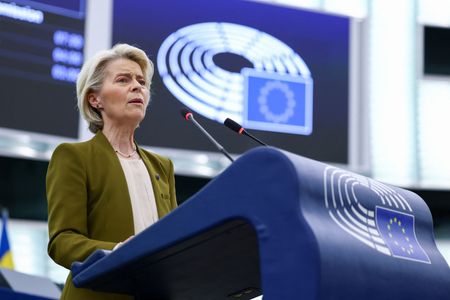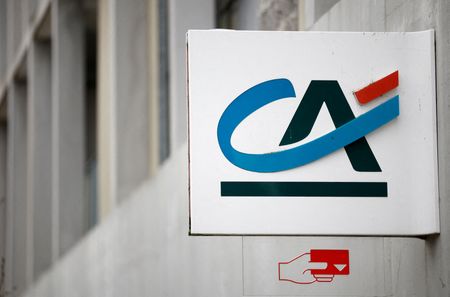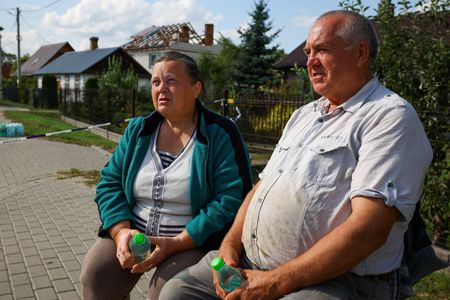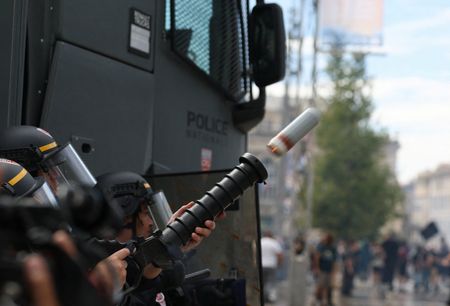By Jan Strupczewski
STRASBOURG, France (Reuters) – The European Union should find a new way to finance Ukraine’s defence against Russia using the cash balances associated with Russian assets frozen in Europe, the head of the European Commission Ursula von der Leyen said on Wednesday.
She said the capital of the assets themselves would not be touched and the risk associated with the new financing would have to be shared collectively by EU countries.
She gave no further details on amounts, or how the immobilised Russian central bank assets can be used.
“This is Russia’s war. And it is Russia that should pay. This is why we need to work urgently on a new solution to finance Ukraine’s war effort on the basis of the immobilised Russian assets,” von der Leyen said in a speech.
“With the cash balances associated to these Russian assets, we can provide Ukraine with a Reparations Loan. The assets themselves will not be touched. And the risk will have to be carried collectively,” she told the European Parliament.
Profits generated by the $300 billion Russian central bank assets immobilised in G7 countries after Moscow invaded Ukraine in 2022 are already going to Ukraine. The G7 agreed on a $50 billion loan to Kyiv that will be paid back from the profits generated by the assets, effectively making the loan a grant.
But some in the EU argue that the profits generated could be bigger if the assets were invested in riskier ventures than the central bank instruments they are being kept in now.
Belgium, whose Euroclear securities repository holds the bulk of the roughly 210 billion euros ($245.95 billion) of assets that Europe has immobilised, has cautioned against seizing the assets or increasing the risk level, arguing it could expose Euroclear to litigation and ultimately create a major financial crisis.
Von der Leyen gave no more detail on how the reparations loan would be constructed but said Ukraine would only pay it back once Russia pays for war reparations but Kyiv would receive the money already now.
“We are in contact with the European Commission on the matter, and we will thoroughly analyse the new proposals. We don’t know what the actual amounts are and will also need to analyse that,” one Belgian official said.
($1 = 0.8538 euros)
(Additional reporting by Andrew Gray; Reporting by Jan Strupczewski; Editing by Benoit Van Overstraeten and Shron Singleton)











